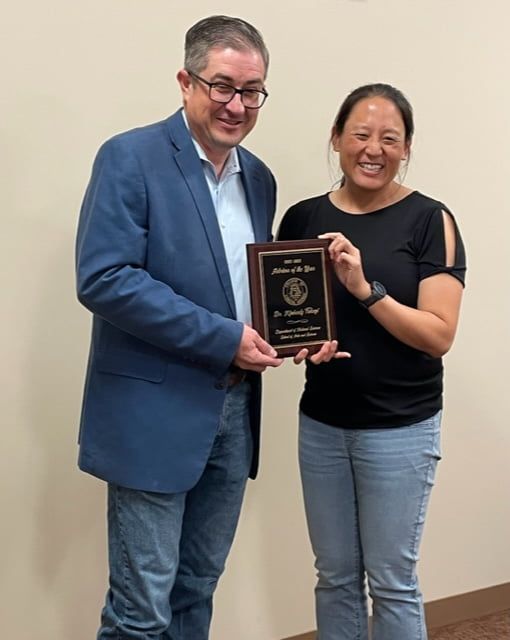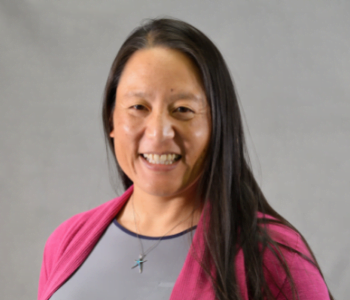- Home
- Academics
- School of Arts and Sciences
- Environmental Science
- Scientific Diving Certificate
Scientific Diving Certificate Program

The mission of the Scientific Diving Certificate at the College of Coastal Georgia is to prepare students for careers in Scientific Diving through student-centered, experiential learning. Graduates will have specialized dive training that will enable them to become certified as an AAUS (American Academy of Underwater Sciences) Scientific Diver.
What will I learn?
By completing this certificate, students, employers, and future employers will know, understand, and be able to apply safe diving practices and proper scientific diving procedures in accordance with AAUS Scientific Diving Standards. The certification courses will take place over three summer sessions (Table 1).
Table 1. Scientific Diving Certificate Course Progression
Session/Course | Course Description |
Maymester, | Students will learn basic skills necessary to begin AAUS Scientific Diver Training; skills such as: oxygen administration, CPR, AED, and First-Aid training will be gained in addition to an introduction to the field of scientific diving. (Includes 2 pool days for dive training). |
Summer Session I, ENVS 4601 | Students will gain the skills necessary to conduct proper Scientific Dives in the field. Students will create a research proposal that applies proper scientific diving techniques. (Includes a 3-day, 2-night camping trip and 6 field training dives). |
Summer Session II, ENVS 4602 | Students will actively engage in environmental research including field and statistical methods with a focus on coastal marine environments. (Includes a 3-day, 2-night camping trip and 6 scientific field dives). |
Why study Scientific Diving at Coastal Georgia?
The American Academy of Underwater Sciences works to “advance and facilitate safe and productive scientific diving.” There are over 130 organizational members that recognize a common standard for the training and certification of scientific divers. Such organizations and institutions include: The California Academy of Sciences, Tetra Tech, The Georgia Aquarium, the University of South Florida, and LG2 Environmental Solutions. Unique to Coastal Georgia is the low-cost to in-state and neighboring state students (Table 2).
Table 2. Estimated Expenses for the Certificate Program (not including tuition).
Cost | Rate | # of Units | Total |
AAUS eLearning | $50.00/course | 1 | $50.00 |
Oxygen Administration | $140.00/course | 1 | $140.00 |
CPR/AED/First-Aid | $107.00/course | 1 | $107.00 |
DAN membership & Dive Insurance | $80.11/membership | 1 | $80.11 |
Rental Gear (Weekday) | $40.00/day | 2 | $80.00 |
Rental Gear (Weekend) | $90.00/weekend | 2 | $180.00 |
Rental Tanks & Refills | $17.00/fill | 10 | $170.00 |
Transportation | $134.00/person | 1 | $134.00 |
Meals (Sessions I & II) | $59.00/day | 6 | $355.00 |
Lodging (Camping Sites) | $5.00/night | 4 | $20.00 |
AAUS Instructional Fees | $1,663.00/student | 1 | $1,663.00 |
Total | $2,979.11 |
What can I do when I graduate?
By participating in the Scientific Diving Certificate Program at Coastal Georgia, graduates will be recognized as meeting the standard for performing scientific diving/research tasks by institutions and organizations throughout the United States and in many countries. Sufficient completion of the certificate program provide evidence that a student can not only perform scientific diving/research tasks, but can also think about and interpret the data in a meaningful way. Students will be able to provide evidence (from a final project) that they can propose and execute a research project that can further our understanding of the field of Marine Science. These skills can be applied to graduate studies, work in industry and/or work with local, state, and federal government agencies with regards to environmental consulting, research, surveying, and restoration.

Dr. Kimberly Takagi Named Advisor of the Year
Dr. Takagi received the honor at the College’s Fall 2023 Launch event. She has also won Professor of the Year.
Contact Information:
Dr. Kimberly Takagi

Kimberly Takagi is a marine environmental scientist and educator. She is particularly interested in coastal ecosystem dynamics and the role of marine invertebrates (crabs, snails, oysters, mussels, etc.) in carbon and nutrient biogeochemical cycling. In her courses, she strives to facilitate learning by immersing students in field and laboratory research approaches. She strives to develop students’ abilities to critically think about environmental processes through student-collected data and course-based research projects.